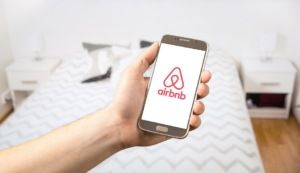News
Airbnb to report homeowner income to Danish tax authority
This article is more than 7 years old.
Proposal is part of new government bill that suggests a 70-day limit and a tax-free allowance of up to 40,000 kroner

Property dwellers will be able to rent out their apartments ten weeks a week or, if you like, 35 weekends (photo: pexels.com)
In an agreement designed to make it harder for renters to skip out on paying taxes, short-term lodging giant Airbnb will automatically report the income that homeowners earn via the service to the Danish tax authority, SKAT.
It is the first such agreement signed with the service anywhere in the world.
Sharing economy platforms like Airbnb and ride share service Uber are coming under increasing scrutiny from regulators wherever they operate. Airbnb and other rental platforms have also faced criticism for contributing to a housing shortage in cities like Paris, Berlin and Amsterdam.
A good place to start
The agreement is part of a bill that needs to be passed by the Danish Parliament, which also includes limiting the number of days an owner may list a property to 70 per year and a tax-free allowance of up to 40,000 kroner.
“We want a flourishing sharing economy in Denmark where it is possible for renters to earn a reasonable tax-free amount on making their property available,” said Karsten Lauritzen, the tax minister.
READ MORE: Denmark is Scandinavia’s largest Airbnb country
Airbnb’s head of public policy in Europe, the Middle East and Africa, Patrick Robinson, said that “Denmark was a good place” for Airbnb to start automatic reporting.
“Denmark has a strong welfare society and Danes are open to new things,” he said.
Airbnb had over 30,000 renters in Denmark in 2017, with more than 900,000 visiting users.










































